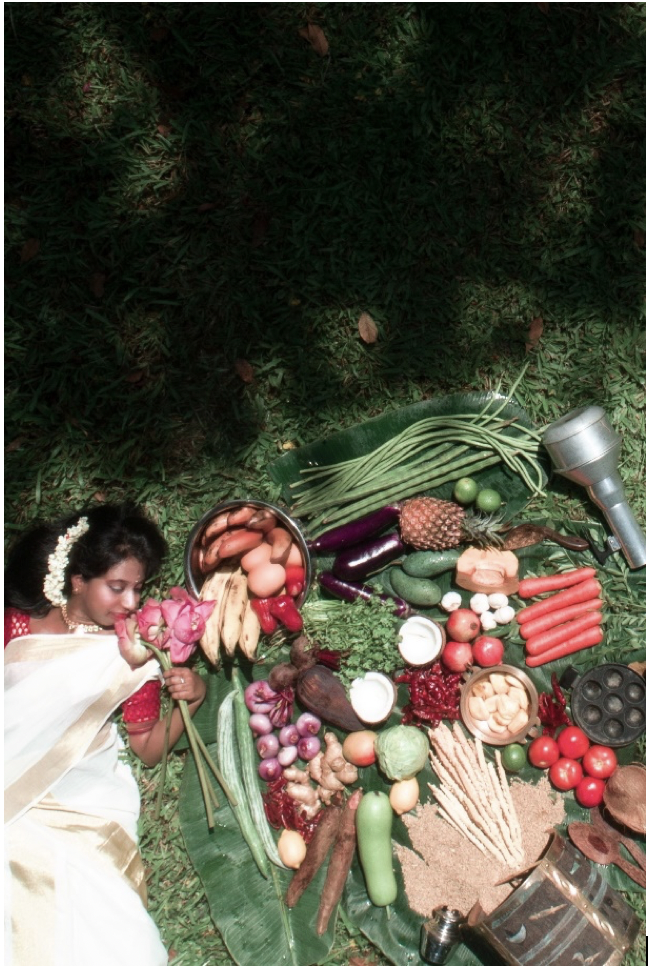Slamming the Door: Reinventing Kitchen Narratives in Contemporary Indian Movies
DOI:
https://doi.org/10.22452/sare.vol59no2.3Abstract
Abstract
In the last ten years, Indian cinema has envisaged culinary spaces as patriarchal structures embedded with the hegemonic practices of the family. Subsequently, Indian cinematic spaces have wielded the kitchens of the Indian subcontinent to interrogate the issues related to gender, identity, culture, and the nation through its visual spaces. The culinary is politicized; the domestic space that has depicted hegemonic masculinity and intersectionality for centuries has been analyzed, exposed, and reimagined in movies like Stanley Ka Dabba (Hindi, 2011), The Lunchbox (Hindi, 2013), Kaaka Muttai (Tamil, 2014), Aamis (Assamese, 2019), and The Great Indian Kitchen (Malayalam, 2021). These movies constantly interrogate and challenge the gender roles and performances prevalent in Indian kitchens. The act of cooking, an agent of a woman's creative expression, has long been understood as an act where food preparations become rituals and performances, and kitchen spaces become a prison house for women. These movies question the power relations which overlay the culinary preparation and consumption in kitchen spaces and thereby mimic the manifestation of gender politics and power play. With the increasing patrilocal families, especially in India, cooking is no more an art or a technique but a bonded labour. This paper investigates the practical ways in which the movies lay bare the issues related to the manifestation of gender identity and the representation of the hegemonic other by reimagining, reinventing and redefining culinary spaces.
Keywords: culinary spaces, kitchen, cooking, gender performance, identity contestation, agency
Downloads
References
Atkins, Peter and Ian Bowler (2001) Food in Society: Economy, Culture, Geography. London: Arnold. pages 1-21
Cairns, Kate, Josée Johnston and Shyon Baumann. (2010) "Caring about food: Doing Gender in the Foodie Kitchen." Gender and Society, Vol. 24, No. 5 (October 2010), pp. 591-615
Charles, Nickie and Marion Kerr.(1988) Women, Food and Families. Manchester, UK, Manchester University Press.
De Vault, Marjorie. (1991) Feeding the Family: The Social Organization of Caring as Gendered Work. Chicago, IL, University of Chicago Press.
Hix, H L . (1994) “In: Scriptions / Ex: Positions: Food, Gender, Power”. Harvard Review. Fall, 1994, No. 7, pp. 139-142.
Lupton, Deborah. (1994) Food, The Body and the Self. London, UK, Sage.
Lewis Jr. David. (30 Apr 2010) Gustatory subversion and the evolution of nutritional dependency in Kiribati. Pages 79-98 | Published online: https://doi.org/10.1080/07409710.1988.9961938
Pandey, Geeta. The Great Indian Kitchen: Serving an unsavoury tale of sexism in home - BBC News
Swenson, Rebecca. (2013) "Domestic Divo? Televised Treatments of Masculinity, Femininity, and Food" Ed. Carole Counihan and Penny Van Esterik. Food and Culture. A Reader. Routledge. pages 137–153.
Weedon, C. (1997) Feminist Practice and Poststructuralist Theory. Malden, M A; Blackwell.
Downloads
Published
How to Cite
Issue
Section
License
Copyright (c) 2022 Babitha Justin

This work is licensed under a Creative Commons Attribution 4.0 International License.
Copyrights of all materials published in SARE are retained by the authors. Authors may republish their work or grant others permission to republish it. We would be grateful if republication is accompanied by an acknowledgment that the work was originally published in SARE.








